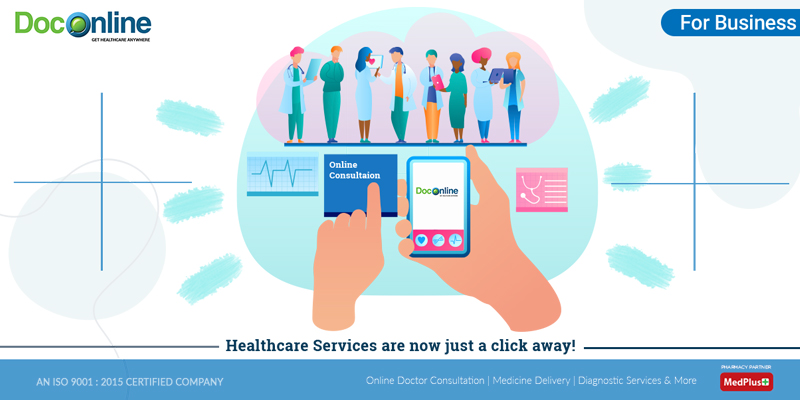A Comprehensive Guide to Subscription Based Healthcare: What You Required to Know
The Rise of Subscription-Based Health Care and Its Influence On Individual Care
As healthcare develops, the subscription-based design is obtaining traction, guaranteeing to reinvent patient care by offering predictability and ease of access. The capacity for these models to reshape healthcare distribution increases pressing questions about their long-lasting sustainability and inclusivity. Are these registration solutions the future of healthcare, or do they run the risk of leaving vulnerable populations behind?
Recognizing Registration Medical Care Models
Realizing the principle of registration medical care models entails checking out a transformative approach to medical services that stresses affordability and ease of access. These designs, frequently described as straight health care (DPC) or concierge medicine, have actually arised as ingenious alternatives to standard fee-for-service health care systems. Subscription healthcare permits patients to pay a set regular monthly or yearly fee for a defined set of clinical solutions, which might consist of unrestricted workplace brows through, routine examinations, and basic lab examinations, without the need for standard insurance coverage invoicing.
The framework of subscription medical care designs is made to streamline person treatment by getting rid of third-party payers and complicated payment codes, thereby lowering administrative problems. Healthcare providers can focus more on person treatment, promoting more powerful patient-provider connections. This design also advertises preventative care by motivating regular check outs, as the economic obstacle of per-visit charges is removed.
The membership model commonly encourages medical care companies to take care of smaller sized person panels, enabling more tailored treatment. It aligns financial incentives with individual wellness results, as carriers are inspired to keep client fulfillment and well-being. Generally, comprehending membership health care versions requires acknowledging their prospective to improve just how care is provided and accessed.
Benefits for Service Providers and people

For suppliers, subscription-based designs use the chance to strengthen patient-provider relationships. With a constant earnings stream, healthcare specialists can dedicate even more time per client, resulting in a much more individualized and detailed care experience. This model additionally reduces reliance on high individual quantities, minimizing fatigue and enhancing task satisfaction. The emphasis on precautionary care within registration strategies can lead to better person results and decreased long-lasting medical care prices. By concentrating on constant treatment, service providers can attend to issues prior to they escalate, ultimately profiting the health care system as a whole by lowering the worry on emergency and severe treatment solutions.
Concerns and challenges
While subscription-based healthcare designs present various advantages, they likewise feature a set of challenges and problems that have to be attended to. Availability remains a significant concern, as these models usually target individuals that can manage monthly charges, possibly omitting low-income populations. This elevates ethical questions about fair access to healthcare solutions. In addition, the different nature of registration plans can result in confusion among people relating to coverage specifics, potentially resulting in unmet expectations or insufficient treatment.
Financial sustainability of subscription-based designs is another worry. Service providers need to balance the set income from memberships with the variable costs of medical care services, which might vary because of unpredicted medical requirements. This can develop pressure to restrict solutions or boost costs, possibly affecting individual contentment and care high quality.
Moreover, regulatory oversight of subscription-based medical care models is still evolving. The absence of standard structures can bring about inconsistent service quality and responsibility, complicating initiatives to make sure person security. The integration of innovation-- usually a keystone of these models-- elevates inquiries concerning information personal privacy and security, as sensitive client details could be at risk to violations. Attending to these obstacles is vital for the successful and equitable execution of subscription-based healthcare.
Effect on Patient-Doctor Relationships
One substantial effect of subscription-based health care models on patient-doctor relationships is the possibility for enhanced continuity and individualized treatment. By taking on a subscription version, physicians can take care of a smaller client panel, enabling more devoted time with each individual. This enhanced accessibility fosters a deeper understanding of a patient's case history, way of living, and choices, allowing a Get More Info lot more tailored treatment strategies and treatments.

Nonetheless, it is vital to acknowledge that while subscription-based models might profit those who can afford them, they can inadvertently widen health care disparities. Clients that are unable to get involved in these designs might experience decreased access to individualized care, possibly impacting their partnerships with health care companies. Thus, while the registration model supplies promising benefits for patient-doctor relationships, it likewise poses obstacles that need to be dealt with to ensure equitable medical care access.
Future of Medical Care Access

The duty of technology can not be neglected in this change. Telemedicine platforms and electronic health records promote smooth communication between patients and medical care carriers, damaging down logistical and geographical obstacles. Furthermore, innovations in expert system and data analytics can better personalize treatment by forecasting patient needs and maximizing therapy plans.
Nonetheless, the future of medical care gain access to also provides challenges, such as guaranteeing equity throughout various socio-economic teams. Policymakers and doctor should collaborate to link the electronic divide, making sure that subscription-based designs remain comprehensive and budget friendly. As these systems develop, they hold home the promise of making health care much more accessible, reliable, and patient-centric.
Verdict
Subscription-based medical care designs are reshaping patient care by offering a secure expense framework and improving access. The rise of subscription-based healthcare motivates proactive individual interaction, which has the prospective to enhance client outcomes and complete satisfaction, indicating a transformative shift in healthcare delivery.
As medical care advances, the subscription-based design is gaining traction, assuring to change person treatment by providing predictability and ease of access.Subscription-based healthcare models use distinct advantages for both clients and companies, boosting the general health care experience.As medical care systems advance, the future of medical care gain access to regularly pivots on the integration of innovative designs and technologies.Subscription-based medical care designs are improving patient treatment by offering a steady cost framework and enhancing access. The increase of subscription-based healthcare urges aggressive individual engagement, which has the prospective to boost client outcomes and contentment, signaling a transformative shift in medical care shipment.